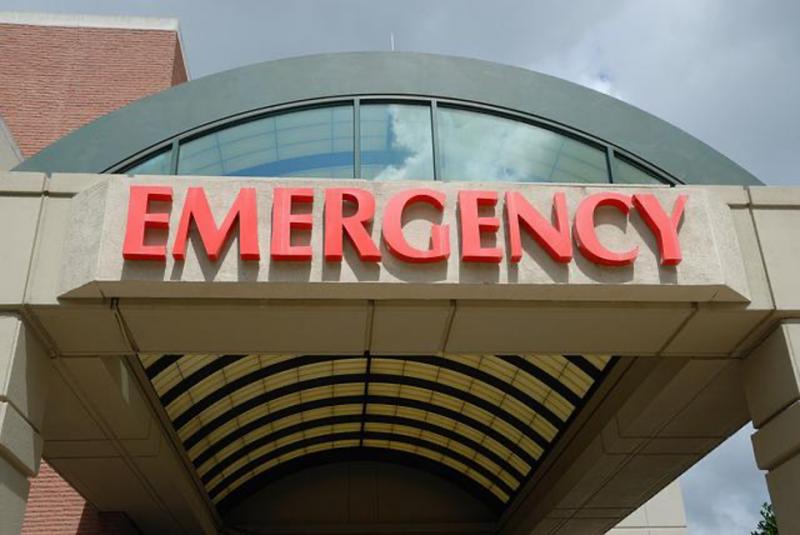Accident & Emergency Claims 2nd To Medical Malpractice or Negligence

As a patient in an emergency room setting who has experienced imperfect care, it's critical to understand the difference between medical negligence and medical malpractice before you can press forward legally.
Suppose a patient finds that an emergency room physician's actions are not up to what would deem as the "medical standard of care" that would constitute medical negligence. If from that negligence, a patient was to receive a further injury, it then becomes a medical malpractice.
It is the patient's burden of proof to evidence the varied missteps that led to the medical malpractice. With that information, a legal claim can then be filed against a healthcare practitioner to recover compensation for the damages.
It's essential to gather the facts and have adequate documentation when taking this step. Let's examine medical negligence and malpractice more in-depth.
Medical Malpractice - A Prevalent Occurrence In Emergency Services
Even in the Emergency Room setting, or perhaps we should say especially in the Emergency Room Setting, errors occur; learn more here. That is despite the many regulations implemented in hospitals to ensure patient safety and preventive measures adhered to by medical providers.
Staggering statistics reveal that these errors constitute "the third greatest cause of death in the country with only cancer and heart disease being primary."
It's critical as a patient when undergoing treatment to be aware of the legal standards of care plus understand what it means to experience negligence before it falls into a malpractice category.
Medical malpractice comes in an array of forms. Negligence can lead a patient to take legal action in the following situations:
- Adequate testing was not ordered
- Patient history was not taken into account
- The wrong medication was either administered or prescribed
- Unnecessary surgical procedures or errors during surgery
- Misdiagnosis
For patients who believe they sustained injuries during the course of their care resulting from a medical provider failing to follow the standards of medical practice, the practitioner's medical malpractice should be reported to the "State Medical Practices Board" straight away. Go here for guidance on what would constitute a reason for a medical malpractice claim.

How Will You Know If You've Experienced Medical Negligence And Potentially Malpractice
In some instances, malpractice is evident such as when a medical provider amputates a wrong limb or performs a surgical procedure on the wrong patient. But some patients might find it challenging to ascertain immediately since an injury can take time to manifest.
Plus, if a professional is aware of the error, they are usually not forthcoming with these details to the patient.
When medical injuries become apparent, they can significantly affect an individual's life not only physically but emotionally and also financially.
At this point, an attorney can work with you to assess how you were able to function before being hurt, currently with the injury, and what the future might look like, given the circumstances.
The lawyer will present his assessment to the healthcare practitioner's insurer of the value that was assigned for the damages, and negotiations will ensue until a fair settlement can be reached.
An attorney will then file for a lawsuit for situations where negotiations are unsuccessful so that the case can be heard in a civil court. In either situation, compensation will be sought for damages, including:
- Loss of wages/potential for future earnings
- Loss of "consortium"
- Pain and suffering
- Medical expenses
● Medical expenses
In many cases, a patient could face considerable medical expenses to correct the damages, whether that includes a corrective surgery, physical therapy, follow-up doctor visits, medications, and potential continued medical intervention into the future.
● Pain and suffering
While the patient will likely be enduring physical episodes of pain, this category also considers the emotional distress and possible mental anguish that's often associated with additional health concerns, especially when faced with emergency trauma in the ER. There is a greater likelihood for depression and anxiety.
● Loss of "Consortium"
In the unfortunate situation where a patient loses their life due to medical malpractice or a negligence, their loved ones could receive compensation via a filing for wrongful death.
Other associations in this category fall under "family benefits" and can include things like affection, sex, or companionship.
● Loss of wages/potential for future earnings
When a patient receives severe injuries, these can permanently impact their capacity to perform in the work environment. Claims can allow for lost wages due to these injuries, along with the possibility for future earnings being affected.

Timeframe For Claim Filing
In some states, patients are given specific timeframes for filing a medical malpractice or negligence claims. These fall under that state's "statutes of limitations."
While some illness or injury signs and symptoms take time to develop, states will allow concessions for this fact. The "clock" on the limitation will start when these symptoms are discovered.
For those who make this discovery or have the notion that there was an error made in the Emergency Room even before the symptoms appear, it's crucial to do due diligence with research plus consult with an attorney specializing in medical malpractice. The lawyer can explain your rights regarding this platform.
The burden of proof will be on the patient and their attorney. There needs to be an explicit degree of knowledge not only on the legalities of the situation but in medicine. The lawyer representing you needs to be able to express the facts in a complex medical case from a legal standpoint.
Final Thought
When trauma comes into the Emergency Room, the doctor needs to be the cool head that leads the team, calms the patient, and assesses the situation. There's no room for mistakes, especially in this setting.
Unfortunately, medical negligence leading into malpractice is prevalent in the country despite preventative measures to ensure patients are protected from potential errors.
Is it that the field is inundated with patients and lacking so greatly with providers that those carrying the load are cutting corners where precautions are concerned? That would be an excuse, and there are none of those tolerated according to the oaths taken. People's lives are at stake. The medical field needs to shape up.
More to Read:
Previous Posts:









